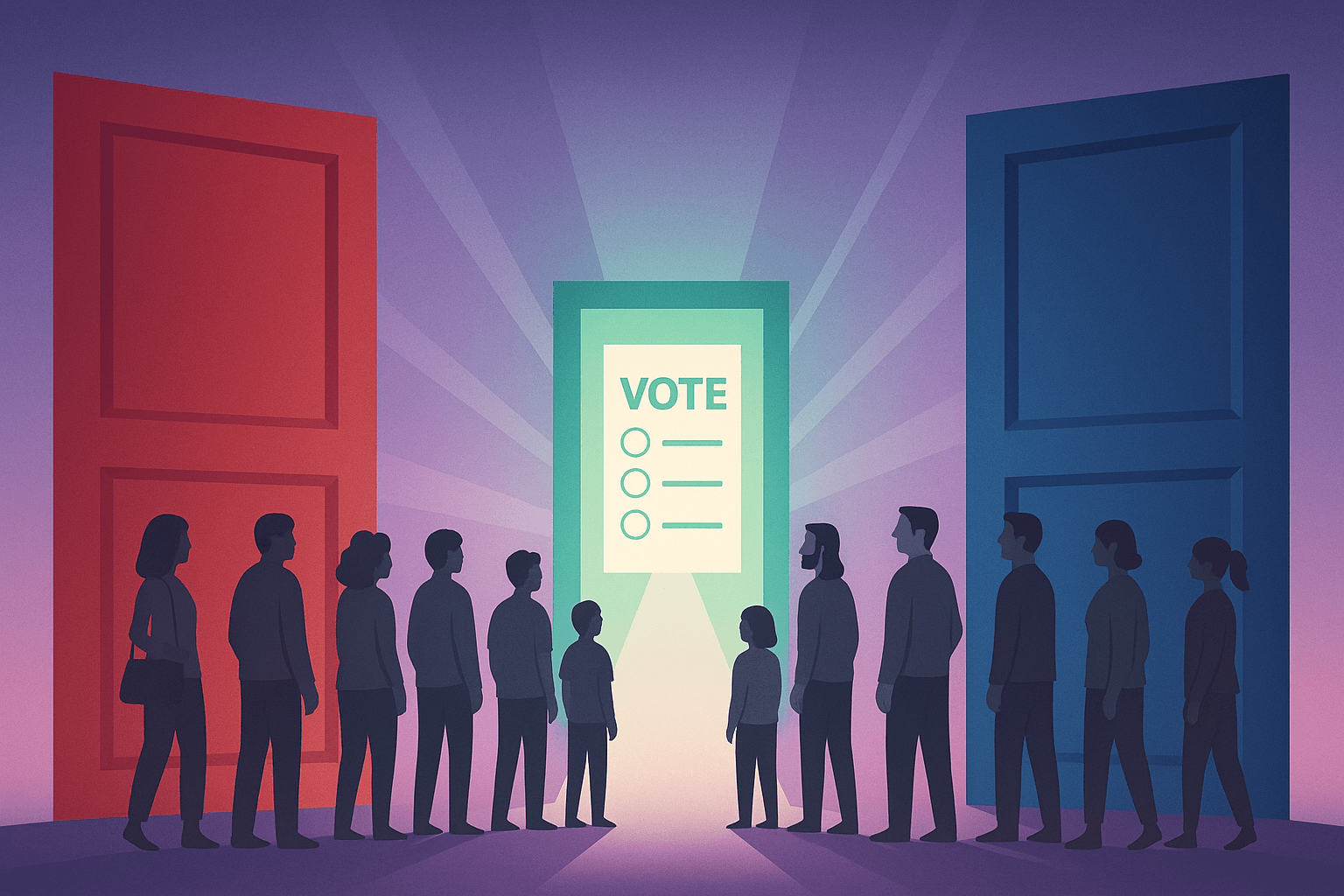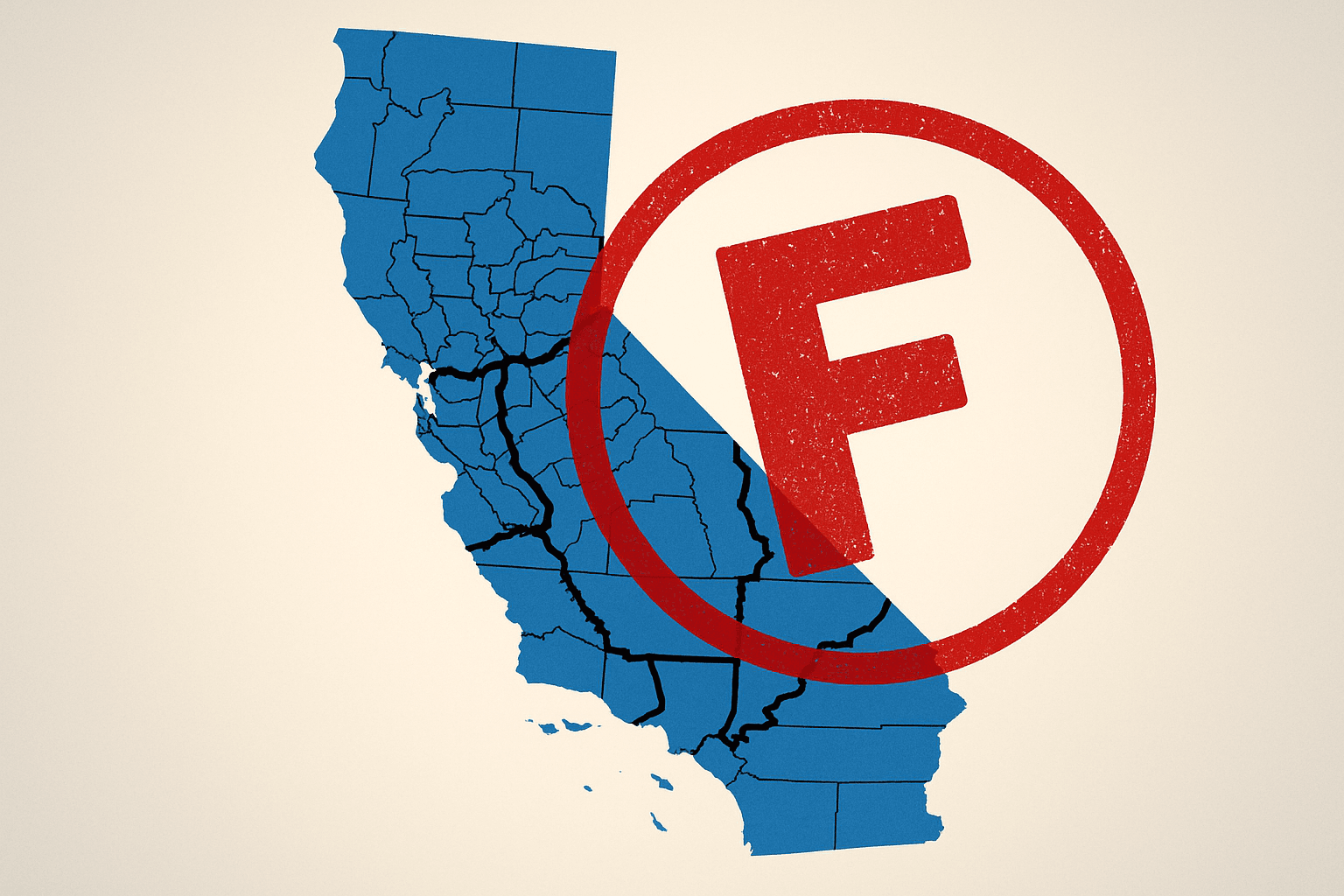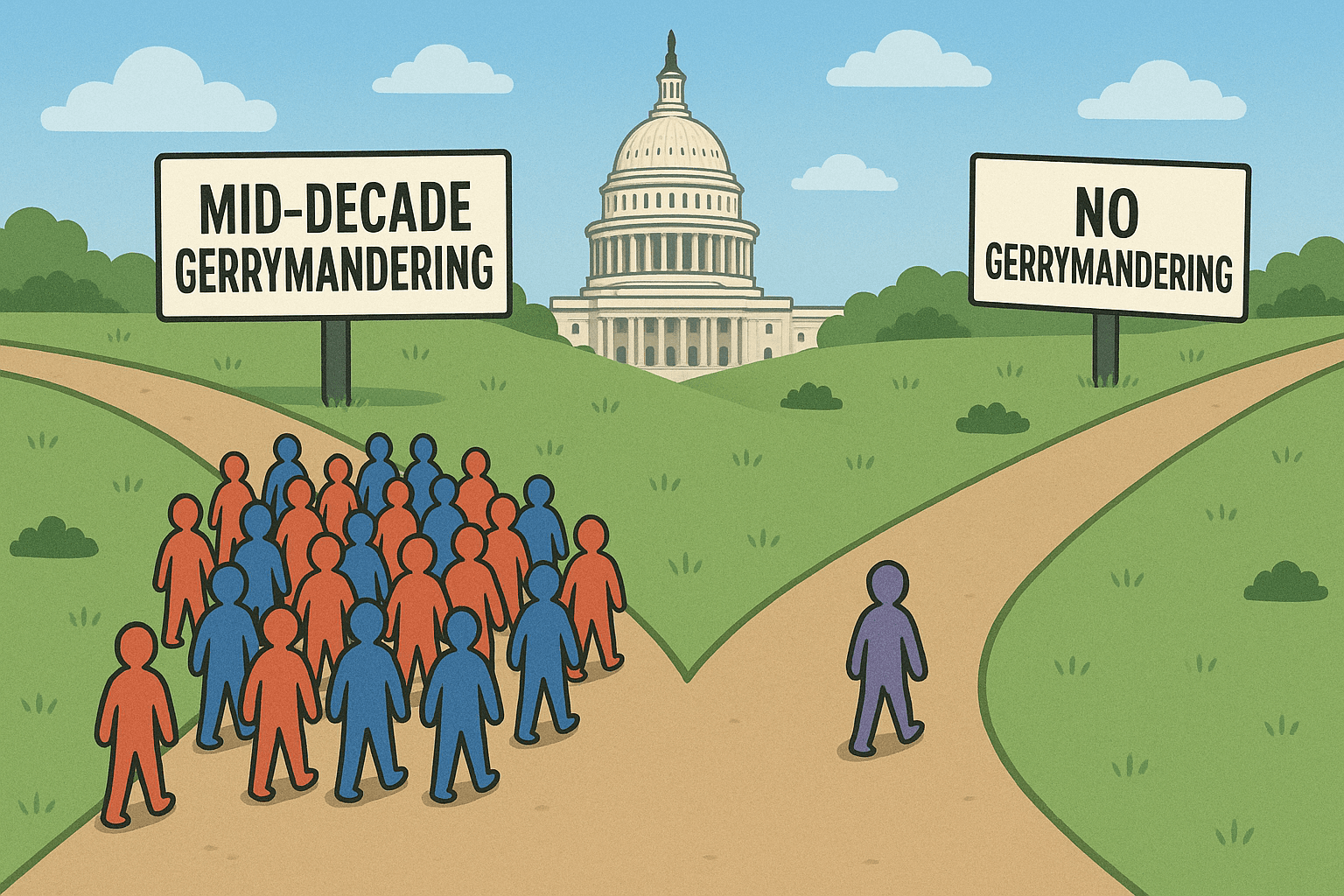Greg Orman: A Rigged Election Process Leads to Rigged Policies

Last week marked the end of the presidential primary season. After 18 months of speeches and debates and millions of tweets, Facebook posts, and email blasts, it will go down in history as a pivotal moment in our experiment with democracy.
And while Donald Trump’s antics and unconventional campaign style will fill political science textbooks, his approach to seeking the highest office in the land isn’t the central lesson of this election cycle. What the last year and a half revealed is that our system is rigged and the American people are on to it.
Americans have a long history of calling for free and fair elections abroad. We routinely send election monitors to foreign countries and opine as to the legitimacy of their elections. The fact that our process is deeply flawed was a shock to our national identity.
While the examples of scale tipping were cringe worthy, particularly when they were punctuated by a trove of emails, it was something we had to see. The visibility of this is vital to our democracy for one very simple reason – a rigged process leads to rigged policies.
Any system that allows elected officials to avoid accountability at the ballot box, also allows them to subvert the will of the people. This shouldn’t surprise us. Why should we expect politicians who use a corrupt system to stay in power to then use their authority for the benefit of the American people?
In fact, in a 2014 review of 1,779 policies over the last 10 years conducted at Princeton and Northwestern, it was determined that when the interests of the economic elite are controlled for, the interests of average Americans have a statistically significant, near zero impact on public policy.
We’ve seen some very recent examples of politicians looking out for the special interests that help them stay in power.
Earlier this year, the Independent Payment Advisory Board recommended that we change the way doctors were compensated for prescribing drugs. The current system encourages them to prescribe more drugs and the most expensive ones at that.
No sooner had they made their recommendations than the American Medical Association (the doctor’s union) and the pharmaceutical industry sprung into action. Aided by their allies on Capitol Hill, both Democrats and Republicans, they worked to scuttle the IPAB’s plan.
In response to the massacre in Orlando, Democrats introduced gun control legislation that American’s favored by a rate of 2 to 1. With heavy lobbying by the NRA, the bill never had a chance.
Republicans hid behind the argument that the bill was technically flawed, but that was just an excuse. Controlling both houses of Congress put them in the position to fix it if they wanted to do so. They were more interested in pleasing their paymasters at the NRA than they were in serving the American people.
And while the Trans Pacific Partnership is on the shelf for now, don’t be surprised to see it come up again when the election is over. For one very simple reason – the US Chamber of Commerce wants it. As one of the largest campaign spenders every cycle, they generally get what they want.
If we want our government to become responsive to Americans again, we need our elected officials to be accountable at the voting booth. Accomplishing this will require us to first reform of politics in three very important ways.
First, we’ll need to “de-rig” the process. That means tearing down the barriers that Democrats and Republicans create to limit competition and disenfranchise Independent voters, who now represent 42% of Americans.
Second, we need to directly address the corrupting effects of money in politics. Until we get a Supreme Court willing to reverse that collection of decisions, including Citizen’s United, that allow corporations, individuals, and membership-based organizations to spend unlimited amounts of money on elections, we will never have a system that is responsive to average Americans.
In the interim, there are a few practical steps that we can take. First, we can require full transparency for all campaign spending. This means secretive 501(c)4 organizations that aren’t currently required to disclose their contributors should be obligated to do so.
As an aside, for those people concerned about the Russians interfering in our elections, they don’t need to hack into our email servers to have an impact. Under our current campaign finance laws, they simply need to have their U.S. subsidiaries invest directly in electioneering activity. They can do so legally and anonymously.
We should also give every American a $500 tax credit for campaign contributions. If money is speech, as the Supreme Court has asserted, then average Americans should be empowered to have their voices heard to counteract the voices of the economic elite and the special interests.
Finally, we need to change the incentives for elected officials. We should impose an ironclad lifetime ban on lobbying for members of Congress with real penalties for violators.
Congress shouldn’t be a stepping stone to a seven-figure job lobbying ones’ former colleagues to get money out of the federal treasury.
Second, we should eliminate leadership PACs. These political slush funds can be used by our elected representatives to pay for just about anything – a mistress with a video camera (as John Edwards did), first class and private air travel, or a no-show job for a candidate’s kid, just to name a few.
Ninety-nine percent of the $60 million in bi-annual contributions to these funds were made by lobbyists and special interests.
Finally, we should end congressional pensions and replace them with a 401(k) that’s transportable – a subtle, but important signal that their roles in Congress weren’t intended to run for their entire working lifetime.
While the duopoly has been remarkably unsuccessful at getting anything done in Washington DC, their attempts to rig the electoral process have been exceptionally effective.
The net result has been predictable – a 14% congressional approval rating, coupled with a 94% re-election rate. Only by rigging the rules would such an outcome be possible.
Unless we learn the central lesson of this election cycle and begin to tear down the walls that allow elected officials to operate with impunity, future elections will be beset with more anger, more hopelessness, and more Donald Trumps.
Editor's note: This article originally published in The Hill on August 3, 2016. Republished with permission.
Photo Source: Charlotte Observer





